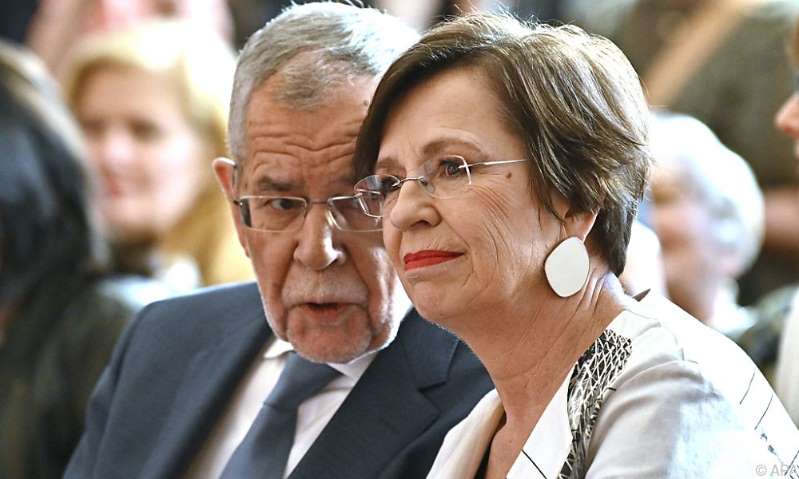On the occasion of International Women's Day on March 8, Federal President Alexander Van der Bellen and First Lady Doris Schmidauer made a virtual invitation to the Hofburg this time because of the corona pandemic. On Friday morning, the hosts were happy to see around 600 participants in their online event entitled “On stage. On track. On the situation of women”. Van der Bellen reminded them that Women's Day is “not just a woman's business”, but concerns both sexes.

Image: APA
The equality of the two sexes is a “matter of women and men”, said the Federal President: “We all have to take a closer look”. Discrimination not only harms those who are discriminated against, but also those who discriminate, he referred to empirical data that showed that companies were also more successful economically. “We need cooperation on an equal footing,” warned the head of state.
The Federal President wistfully recalled the women's day last year, which was still physically celebrated with numerous participants in the presidential office. You have greeted acquaintances and made contacts. Nevertheless, he is pleased with the large number of spectators, “yes, there are men too”. Among other things, Van der Bellen welcomed Defense Minister Klaudia Tanner (ÖVP), ex-Chancellor Brigitte Bierlein, State Secretary for Art and Culture Andrea Mayer (Greens) and NEOS boss Beate Meinl-Reisinger as well as the women spokespersons of the parliamentary parties, numerous regional councilors and mayors.
Doris Schmidauer also recalled the “atmospheric pictures from last year” and that “especially women” felt the effects of the corona crisis on their own bodies. Women were often affected by the multiple burdens of work, home office, distance learning and caring for relatives. The “gap between women and men” in business and education is still large. And even during the crisis, most of the experts who spoke were men, said Schmidauer. Women keep the country going, but it is still mainly explained by men. Therefore, cohesion is needed: “Together we are strong.”
Three experts provided impetus. One of them, Yvonne Magwas, chairwoman of the group of women in the CDU / CSU parliamentary group, which was switched on via video from Berlin and reported on the efforts in Germany to get more women on supervisory and executive boards. It is gratifying that the discussion alone has resulted in companies increasingly looking for women for management positions. Admittedly, the quota is “just an instrument”, just as important is the compatibility of family and work or “the right to maternity protection for women on the board”. In general, family responsibility must be possible in spite of or with a leadership position.
Author and journalist Ingrid Brodnig pointed out that “traditional gender roles” also played a role in the digital age. As an example, she cited language assistance systems, many of which not only have a female name and a female voice, but also fulfill classic gender stereotypes. There are also studies showing that speech recognition software understands women's voices more poorly. One of the reasons for this is that they were trained with audio recordings of male voices. “Products for men are often designed as the norm,” says Brodnig. However, technology must be geared more towards feminist aspects. The question arises, “What can be done to make the Internet more feminist?” Asked Brodnig.
Cultural and gender researcher Beatrice Frasl postulated that mental health is also a feminist issue. Because cash-funded psychotherapy is contingent, at the same time women suffered “twice as often from depression as men”, which is due not least to the fact that socio-economic circumstances such as being affected and at risk of poverty, social exclusion, atypical employment relationships, from which women are more often affected, are risk factors for such diseases are. The corona crisis intensified that again. Frasl therefore called on politicians to “significantly improve access to psychotherapy”.

